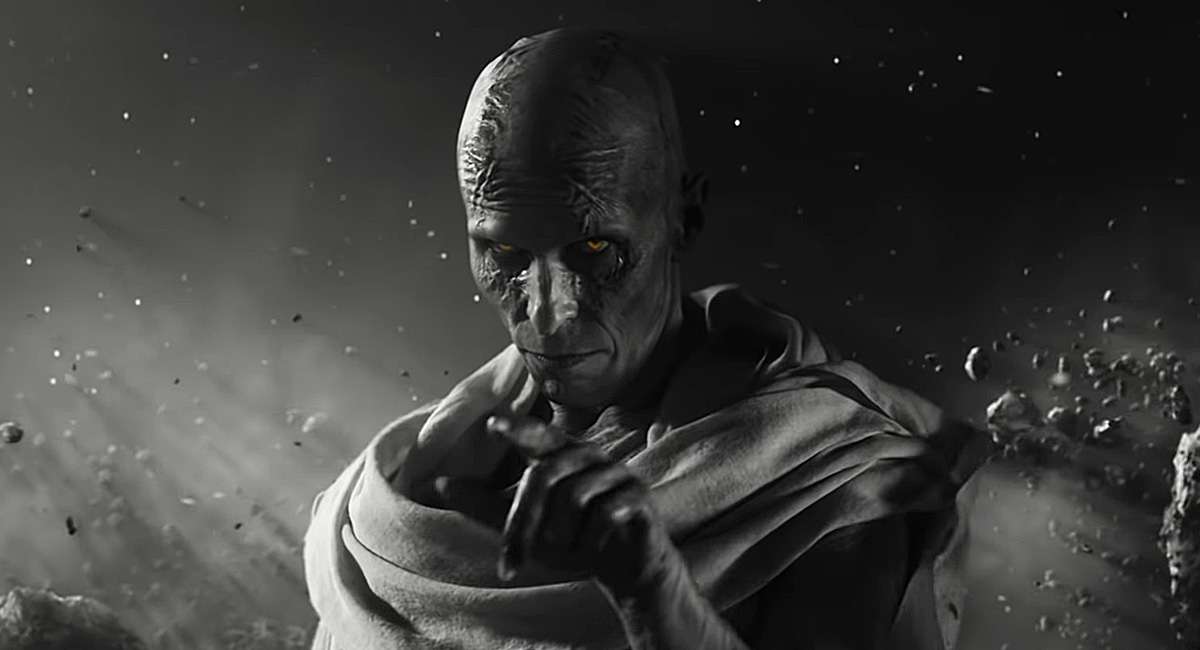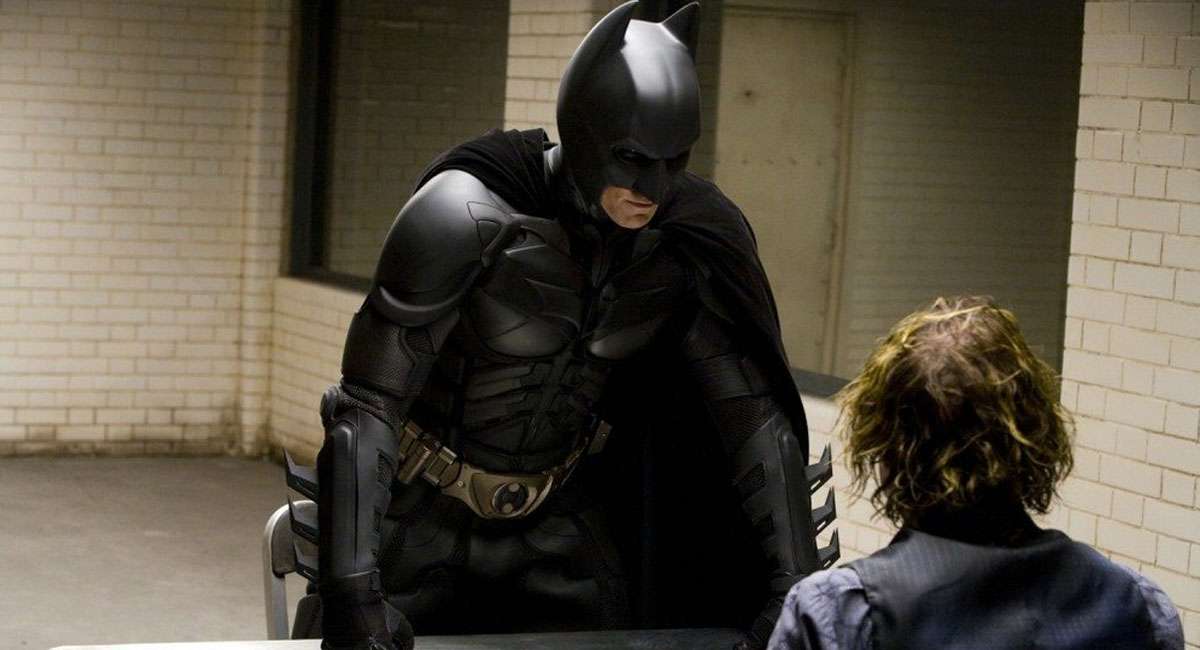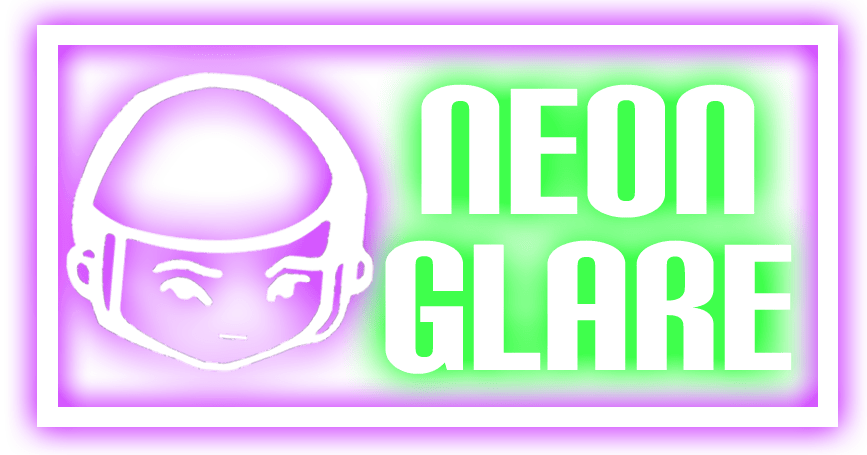
Marvel’s Thor movies, now over a decade since a 2011 debut, have effectively pivoted into the realm of meta-minded madcap action under the directorial stewardship of Taika Waititi. Indeed, after his 2017 threequel, Thor: Ragnarok, proved to be a fun tonal detour against the melancholy of the 2013 second film Thor: The Dark World, Waititi’s imminent follow-up, Thor: Love and Thunder, is being touted as an even wilder ride. Yet, while the fourth film’s latest trailer leans into the onscreen amusement park aspect, it also draws a dramatic delineation by showcasing villain Gorr the God Butcher, as played by Christian Bale, who seems to be leaning into his Batman temperament.
It is now clear why Gorr was left out of the initial trailer for Thor: Love and Thunder since the ghoulish antagonist seriously detracts from any strategic focus on the lighthearted levity suggested in its very title. Yet, it was always clear that, unlike the alien coliseum and wildly homicidal Asgardian princess showcased in its immediate predecessor Ragnarok, this fourth film is secretly bearing poignant, existential themes. After all, Natalie Portman’s return as Thor’s ex-girlfriend, Jane Foster, is perceived as a Girl Power moment when she achieves worthiness to wield Thor’s ex-weapon, the hammer Mjolnir, to become Mighty Thor. But, akin to the analogous Marvel Comics storyline, the character’s upgrade occurs in the wake of a grim, sobering cancer diagnosis. Thusly, concepts centered around our purpose in life when facing death figure prominently, seemingly embodied by the obsession-driven agenda of Gorr.
The comic book origin and eventual exploits of Gorr the God Butcher are elaborate. Yet, the character’s introduction in the pages of Thor: God of Thunder #2 (2012), arrived in a series that showcased the early exploits of Thor, specifically when Earth’s timeline was 893 A.D. Moreover, the Gorr of the comics might not be recognizable to those only familiar with Bale’s pale manifestation and actually bears a more monstrous countenance, with appendages jutting out the sides of his head. Yet, the character’s motivation remains the same: kill all gods and deliver violent retribution that matches the myriad misfortunes he’s suffered, be it from growing up in starvation on a nameless planet to the seemingly perfunctory tragedies that took the lives of his wife and children. Consequently, as the Love and Thunder trailer demonstrates the colorful capriciousness of the gods that inhabit the Marvel Cinematic Universe—be it Thor himself or Russell Crowe’s extravagantly decadent debuting deity, Zeus—we are presented with a perfect contrast to Gorr’s “Job breaks bad” persona. Thus, having been fundamentally defined by a tragedy, the careless fun we see from the gods ends up justifying a one-man war on those Gorr deems collectively and conceptually responsible for the injustices that caused his pain. Is this starting to sound similar to another famous Christian Bale role?
Consequently, the casting of Bale as Gorr may have been based on the actor’s ability to convey characters defined by painful obsession. In that context, the parallels between Gorr and Bale’s Bat-dressed vigilante from director Christopher Nolan’s The Dark Knight Trilogy become apparent. Gorr, like the parents-deprived Bruce Wayne, was irreparably shaped by tragedy and similarly rendered helpless to exact specific justice against nameless perpetrators, leaving an unfulfilled thirst for vengeance that must somehow be channeled. While Bruce Wayne discovers that his family’s wealth and resources could secretly serve as a kind of superpower to become a vengeful embodiment of the darkness he once feared, Gorr would come into possession of a crucial weapon, the Necrosword (his own proverbial Batman getup and gadgets), which, pilfered from the hand of a dying god, embodies him with celestial powers and, most importantly, the ability to execute purportedly immortal gods. In that sense, the galaxy has become Gorr’s proverbial Gotham City.

While Marvel Comics’ introduction of Gorr was a modern retconned storyline depicting him as an enemy that Thor fought and defeated during a time that was historical from Earth’s perspective, it’s clear that Bale’s version will operate in the contemporary timeline. Thus, the immediacy of his quest for vague vengeance will target Thor and his newly reunited former love Jane Foster/Mighty Thor, creating a conflict that will certainly contradict the bright fun on display. Indeed, the very look of Bale’s Gorr evokes anguish, seemingly draining the very colors out of every scene, with a countenance that’s a hybrid of Boris Karloff in Universal’s 1932 version of The Mummy and Bengt Ekerot as the cloaked, chess-playing embodiment of Death in director Ingmar Bergman’s 1957 film, The Seventh Seal. It’s going to take an exceptionally executed delivery of the franchise’s signature comic relief to make light of this man’s misery.
Of course, this brief analysis is by no means an irony-addled, Karate Kid/Cobra Kai-esque “Gorr is the real hero of the story” declaration. Rather, it’s just an observation that’s akin to the dominant theme of The Dark Knight delivered by Aaron Eckhart’s Harvey Dent, “You either die a hero or you live long enough to see yourself become the villain.” In this case, Gorr’s deicidal spree is, from his painfully myopic perspective, simply the kind of vigilantism that Batman practices (albeit with the latter’s loosely adhered no-kill ethos). Likewise, both Gorr and Batman found themselves excoriated as villains in the name of expediency to status quos—respective methods notwithstanding.
It might be irresponsible to outright declare themes for a film that hasn’t even been released, but it does appear that Thor: Love and Thunder’s bountiful bravado is hiding deeper messages. Based on Bale’s character and the Nolan-esque concepts seemingly on display, the message might be that the state of defining your actions by grievances—even ones that are legitimate—does not inherently make you a hero, especially if said grievances compel you to act in a manner that’s contrary to basic values of civilized society.
We’ll definitely see what darkness resides under Thor: Love and Thunder’s intensely flamboyant veil when the film hits theaters on July 8.

